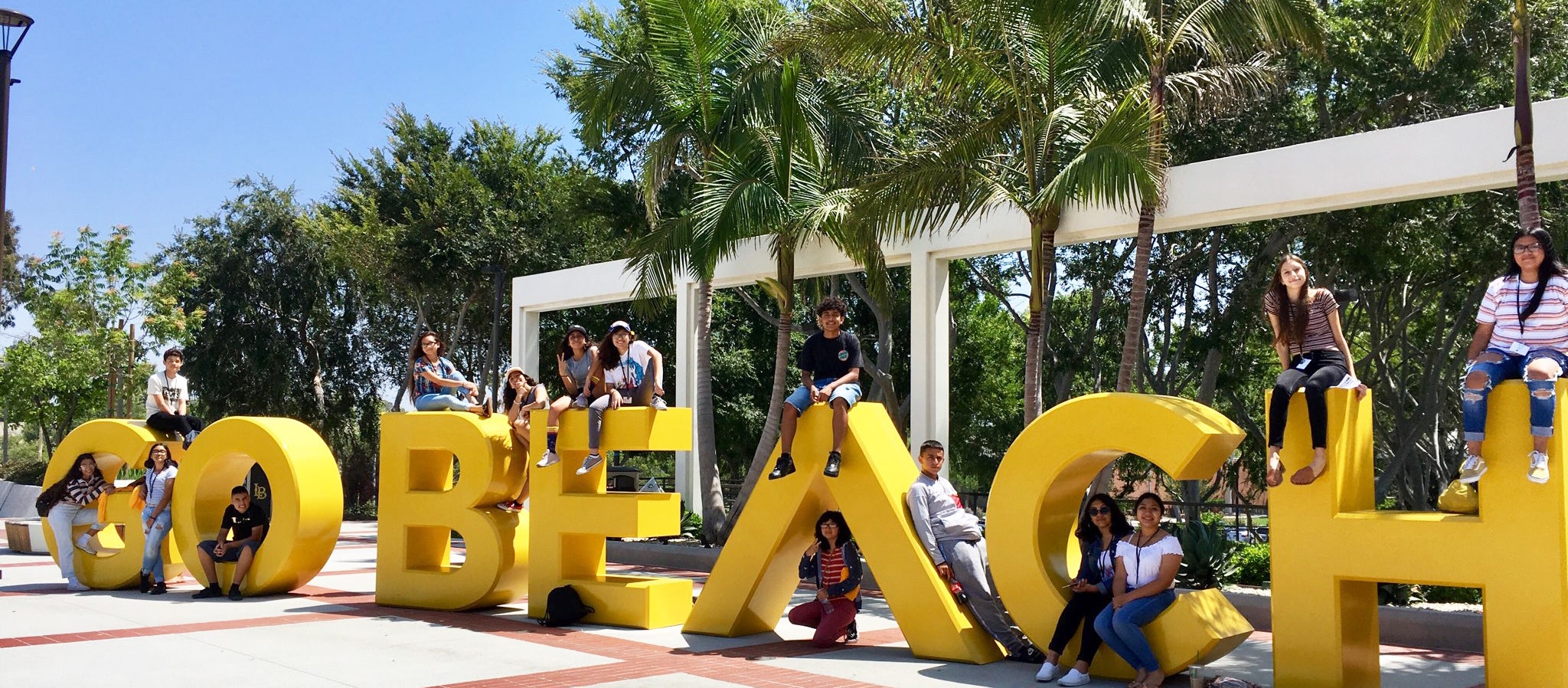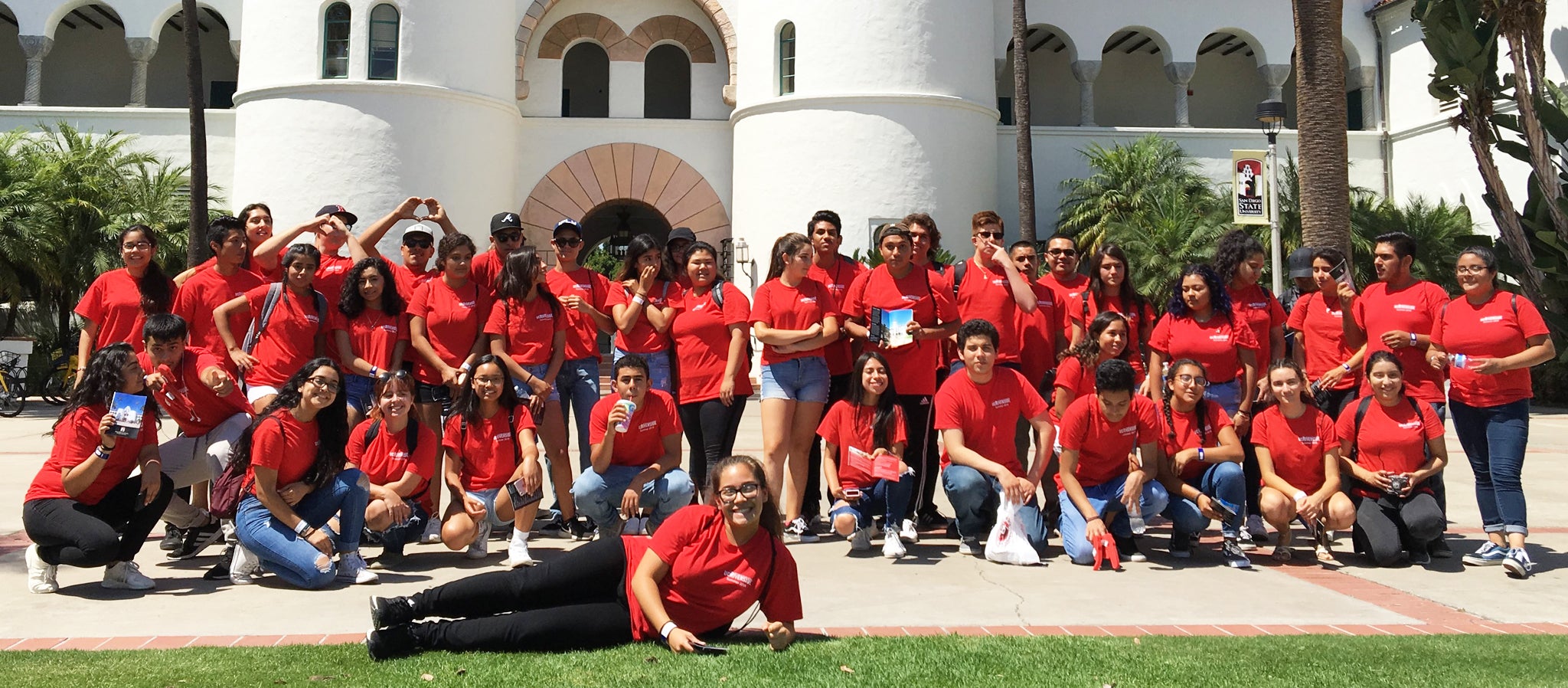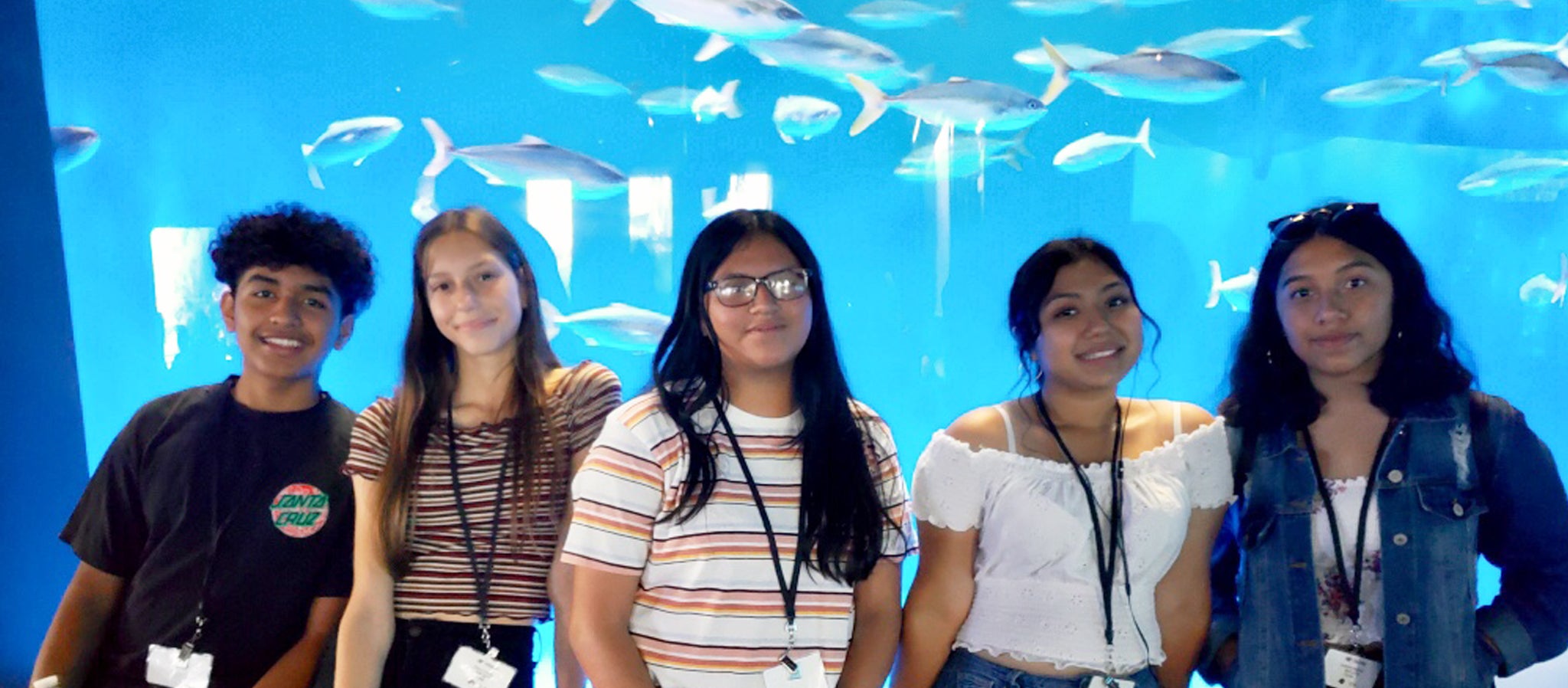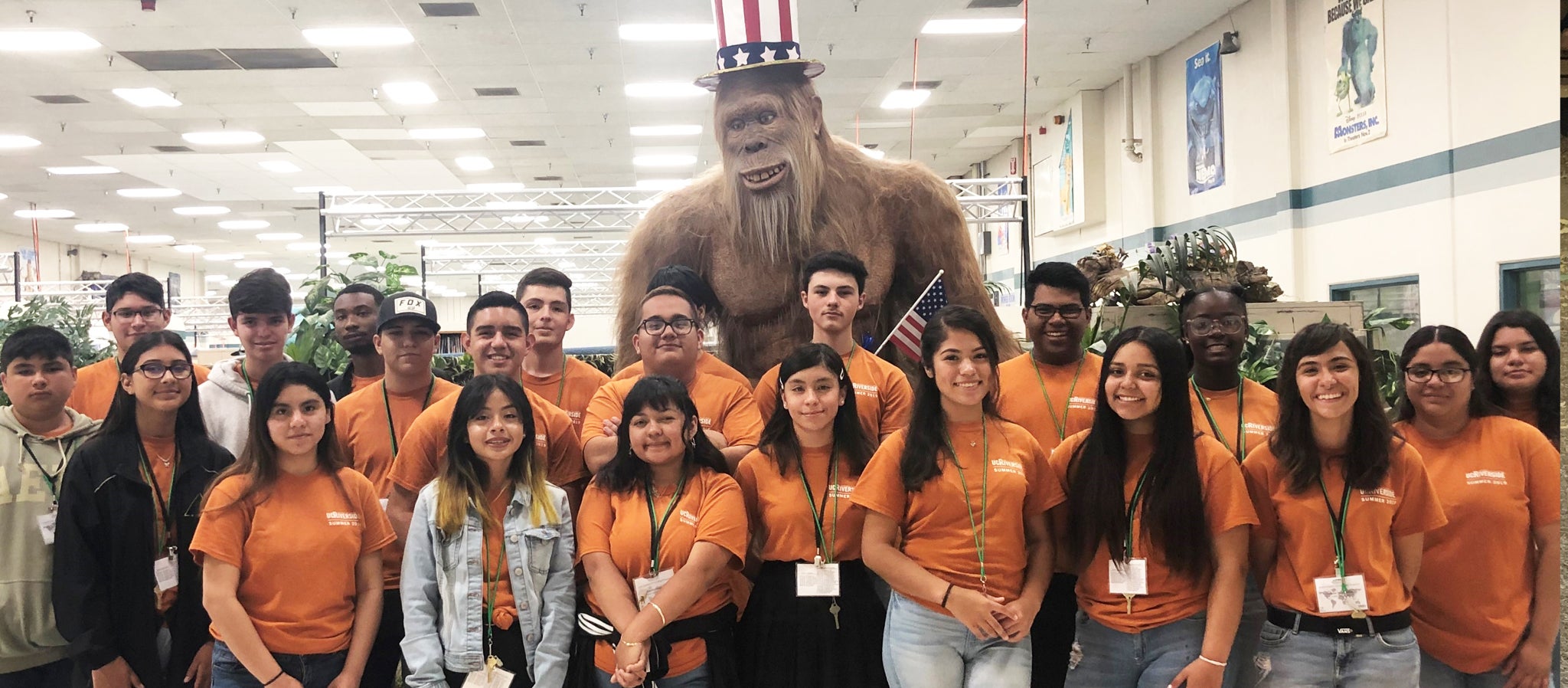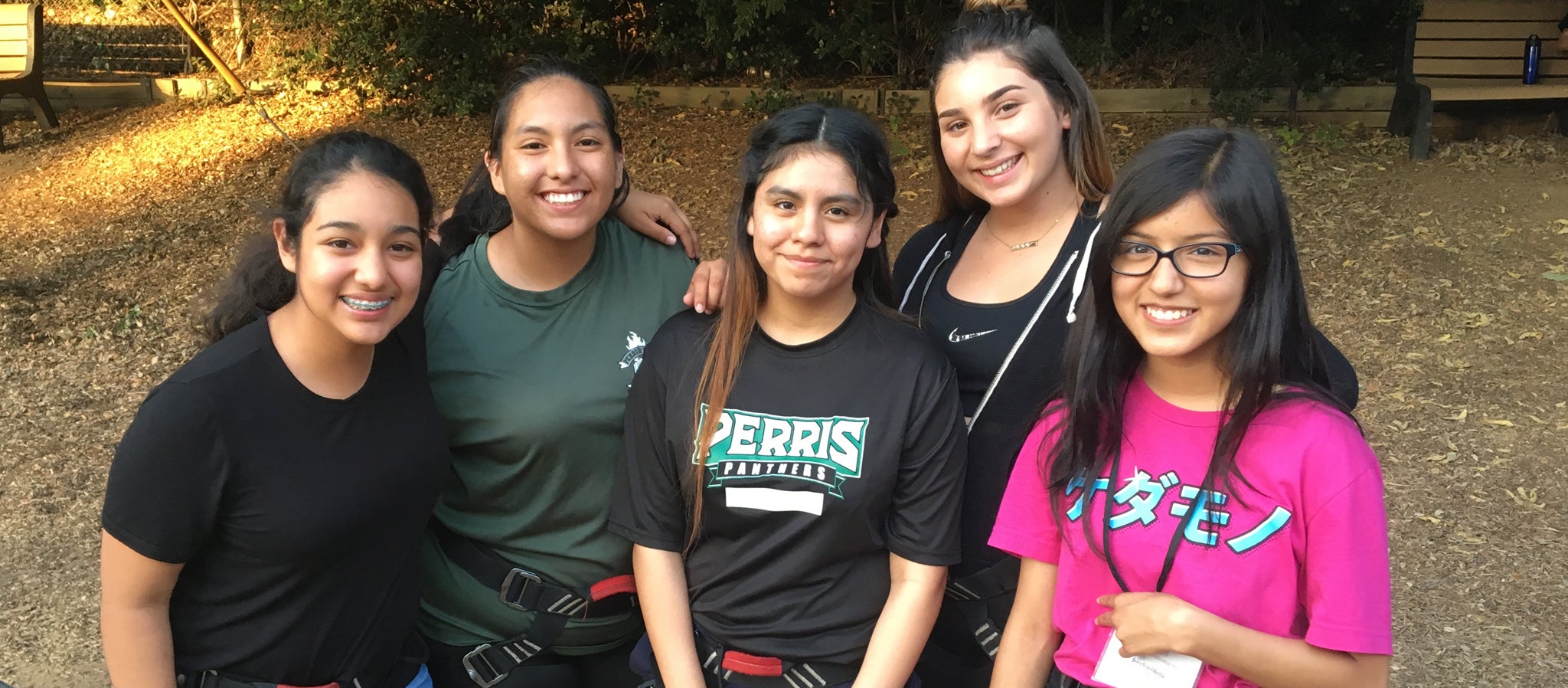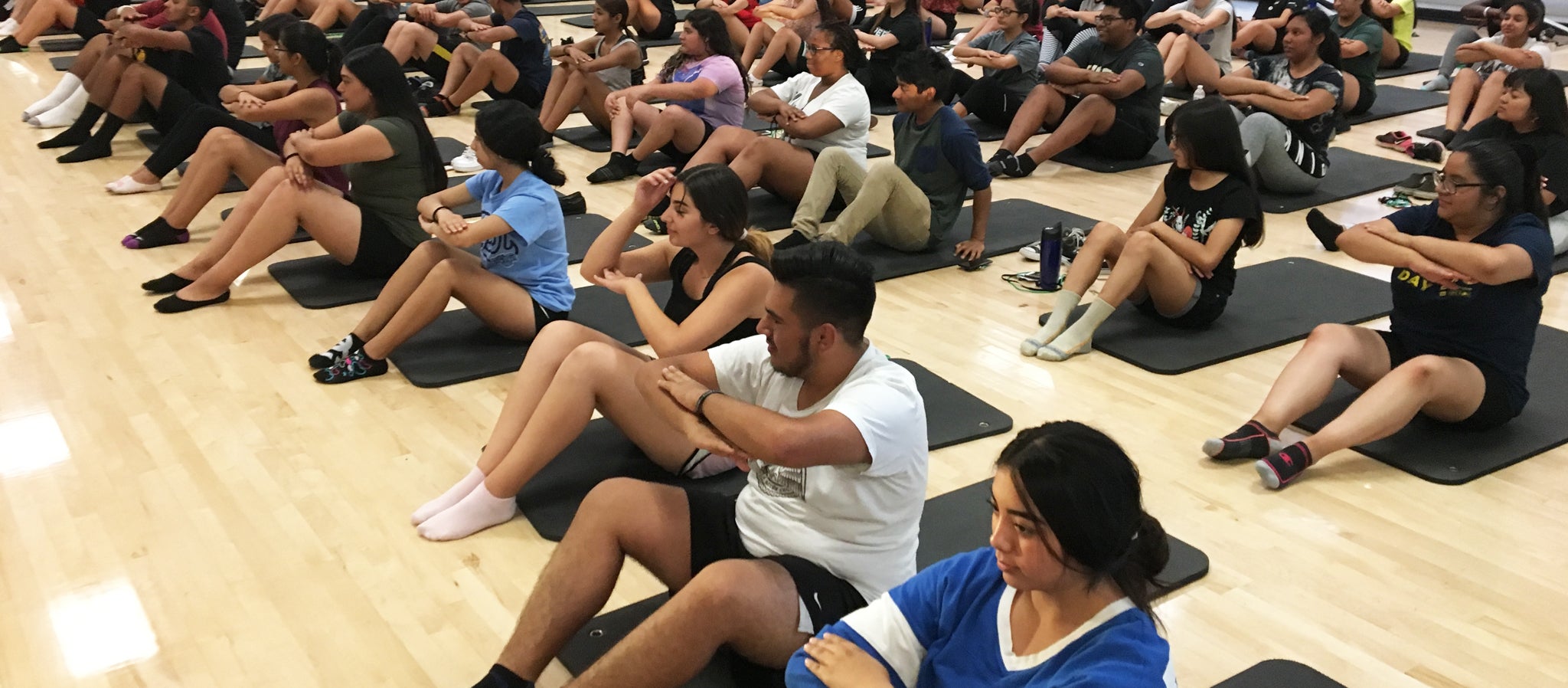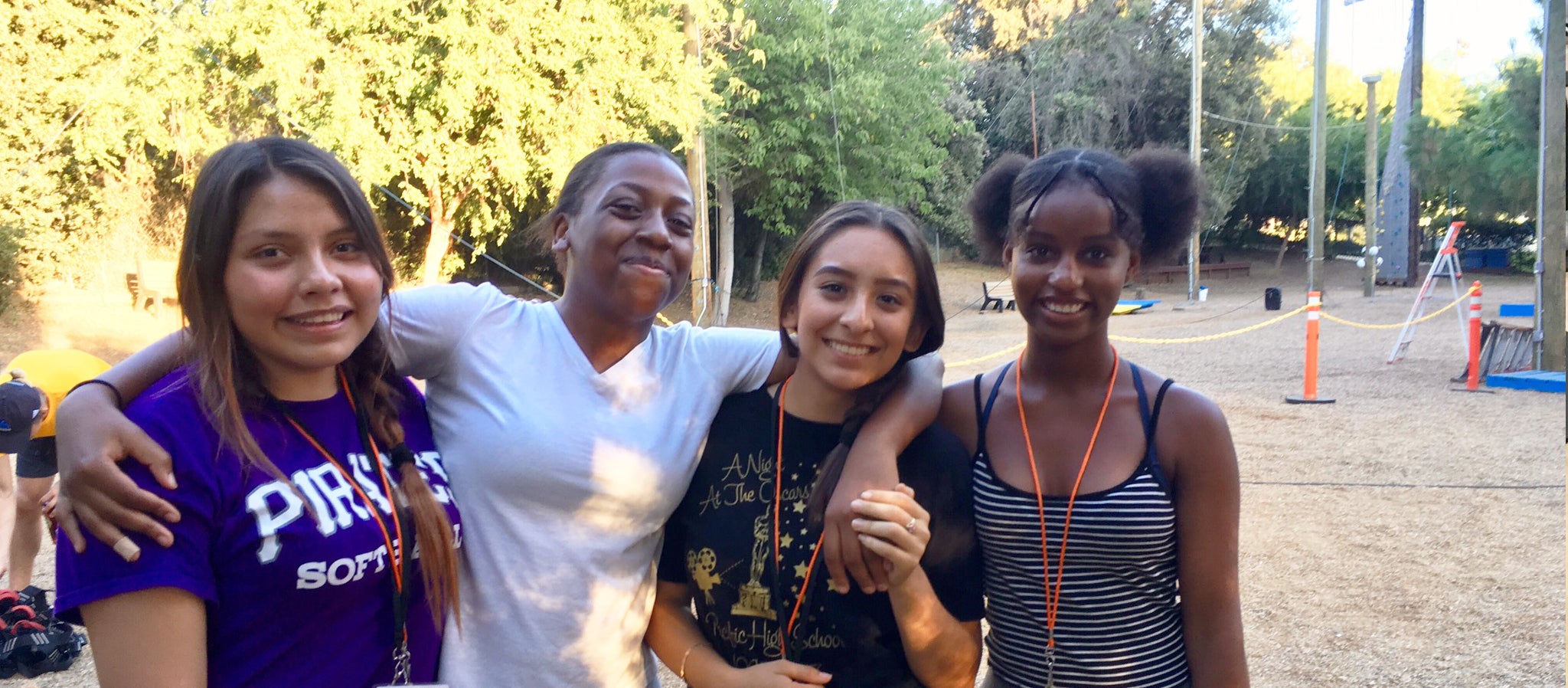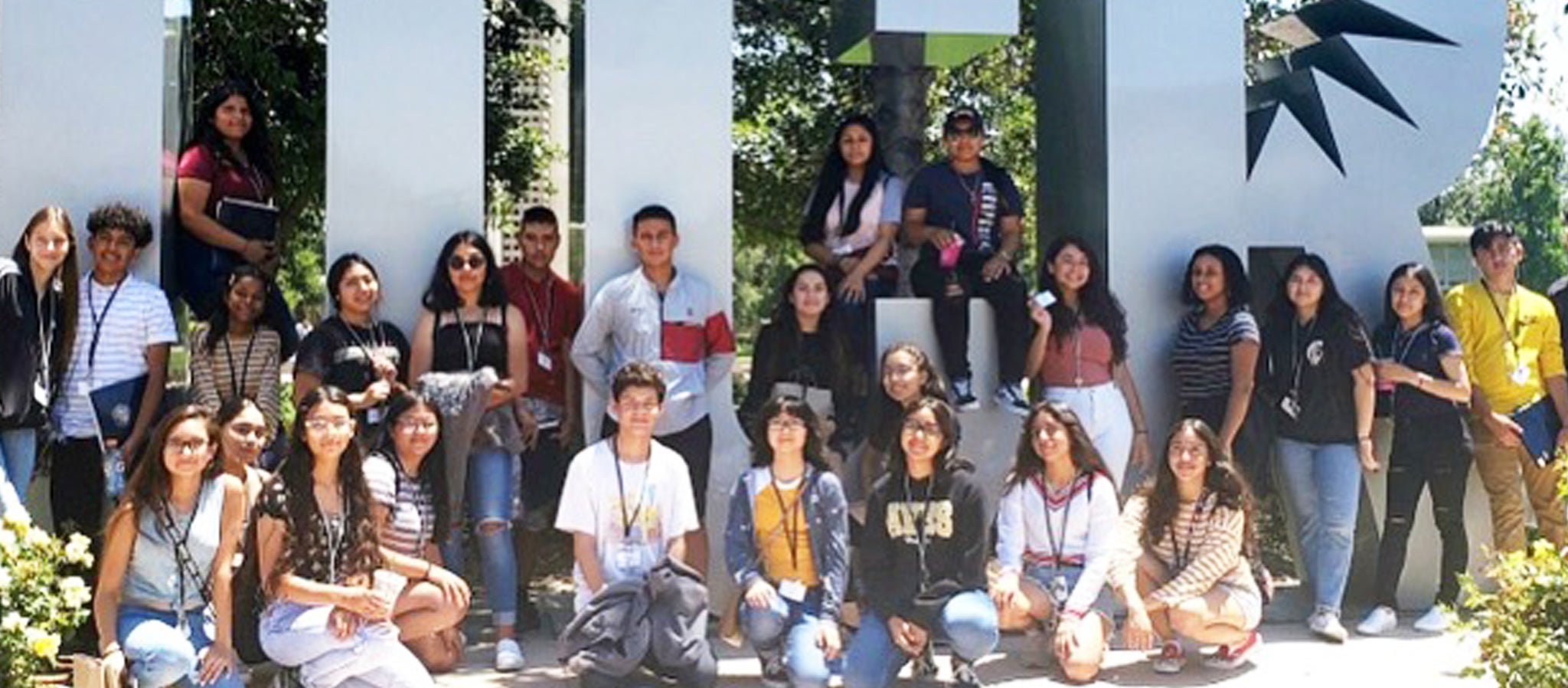TRIO Pre-College at UC Riverside
UC Riverside's TRIO Pre-College programs motivate, encourage and equip low-income and potential first-generation college students as they enroll in, persist at, and graduate from a postsecondary institution. Available to students of select Riverside and San Bernardino County high schools, TRIO program participants receive free services including academic tutoring, mentorship, financial guidance, application assistance and fun enrichment activities that improve educational access and retention.
Funded by the United States Department of Education, TRIO Pre-College has been at UCR since 1998 and provides services to over 800 students at 14 schools in the Banning, Colton, Rialto, Riverside and San Bernardino areas. Our TRIO Pre-College programs are Educational Talent Search and Upward Bound (Classic, Oasis, Rialto/Colton Joint).
Educational Talent Search (ETS)
Educational Talent Search at the University of California, Riverside (UCR) is offered at Arroyo Valley, Indian Springs, Pacific, San Bernardino, and San Gorgonio High Schools. To apply, fill out the form linked below and give it to the ETS contact at your high school or email it to ets@ucr.edu.
-
ETS Free Services
One-on-One Academic Advising
ETS staff meet with program participants and review their transcripts to ensure that they are taking classes that fulfill the entrance requirements set by the University of California and the California State University systems.
College Campus Visits & Educational Activities
During the academic year, participants will have the opportunity to visit and tour colleges in or around Southern California. They will also have the opportunity to participate in educational activities that will help to expand their interactions outside of their immediate living area. Transportation and other expenses are paid for by Educational Talent Search.
Assistance with College Admissions & Financial Aid Applications
ETS staff offer assistance when parents/participants fill out college admission and financial aid forms. Staff also remind participants about important deadlines (SAT/ACT, college admissions, financial aid, etc.).
Summer Programs
ETS offers its participants two opportunities to participate in a summer residential program. Both programs allow participants the chance to experience "college life" by living in the UCR residence halls. Summer Residential Program (SRP) is a three-day residential program where rising sophomores and juniors receive supplemental support in Math and English, in addition to workshops focused on college admissions and study skill development. Senior Seminar Program (SSP) is a three-day residential program for rising seniors. The program will introduce the college application process to our participants making sure they are aware of each step necessary as they complete college and financial aid applications. Members from various UCR departments will provide presentations for both programs. In addition, participants take part in various extracurricular/team building activities.
Tutoring
ETS works closely with school sites to ensure that students' tutoring needs are being met by the provided school site resources, and also provides referrals to educational services.
-
Participating High Schools
Arroyo Valley High School
School Contact: Mrs. Dool, CounselingIndian Springs High School
School Contact: Mr. Kelly, Career CenterPacific High School
School Contact: Mrs. Munoz, Career CenterSan Bernardino High School
School Contact: Mrs. Moreno, Career CenterSan Gorgonio High School
School Contact: Mrs. Rivera, Counseling -
Eligibility
To be eligible for ETS, you must:
- Be a citizen or permanent resident of the United States.
- Be considered low-income per federal income guidelines and/or neither one of your parents/guardians have a college degree.
- Have a minimum GPA of 2.5 in academic classes.
- Be interested in pursuing a higher education.
- Attend one of the following high schools served by UCR ETS:
- Attend one of our participating high schools
- Attend one of our participating high schools
-
Questions? Contact us
1420 Iowa Ave. Ste. 100
Riverside, CA 92507ATTN: Educational Talent Search
(951) 827-7863
ets@ucr.edu
Upward Bound programs
The University of California, Riverside (UCR) has three Upward Bound programs (UB Classic, UB Oasis, UB Rialto/Colton Joint) which serve nine high schools in the Banning, Colton, Rialto, and Riverside areas. To receive a copy of the application, please complete the Interest Form.
-
UB Free Services
UB Free Services
One-on-One Academic Advising
UB staff meet with participants and review their transcript to make sure they are taking classes that fulfill the entrance requirements set by the University of California and the California State University systems. Staff also remind participants about important deadlines (SAT/ACT, college admissions, financial aid, etc.), and offer assistance when parents/ participants fill out college admission and financial aid forms.After School Tutoring/Study Hall
UCR college students provide free online tutoring after school multiple times a week.Saturday Sessions
On select Saturdays, participants receive tutoring, supplemental instruction in Math and English, information on career options and higher education, and participate in cultural activities. Test prep for the SAT is available for our current juniors. Seniors also participate in a special seminar to prepare them for the college admission and financial aid processes. Includes morning snacks and lunch.College Campus Visits
During the academic year, participants tour colleges in and around Southern California.Educational Activities
UB takes participants on educational field trips around Southern California. UB covers the cost of food, admission, and transportation.Northern California Tour
In the summer, a select group of rising senior participants go on a three-day trip through Northern California for college tours and cultural activities. UB covers the cost of food, lodging, transportation, and trip fees.Summer Program
During this intensive 6-week program, participants experience college life and take academic enrichment courses to prepare them for challenging high school courses. For five weeks, participants are bused from their high schools to UC Riverside for class (Monday through Thursday). Fridays are reserved for activities and field trips. During the last week, participants live in the residence halls. A stipend is provided to program participants. -
Participating High Schools
Participating High Schools
UB Classic provides services to selected students from:
- Moreno Valley High School
- Perris High School
- Rubidoux High School
UB Oasis provides services to selected students from:
- Banning High School
- Norte Vista High School
- Ramona High School
UB Rialto/Colton Joint (RCJ) provides services to selected students from:
- Bloomington High School
- Colton High School
- Eisenhower High School
-
Eligibility
Interested in applying?
Be sure that you:
- Attend a participating high school
- Are a freshman or sophomore
- Are interested in pursuing a higher education
- Have a minimum G.P.A. of 2.5 in academic classes
- Are a citizen or permanent resident of the United States
- Are considered low-income* and/or a potential first-generation college student (meaning neither parent has a bachelor’s degree)
* The federal government determines qualifying low-income levels. To learn more visit here.
-
Questions? Contact us
Questions? Contact us
CLASSIC—Moreno Valley, Perris, and Rubidoux high school students contact:
Hector Navarrete
hector.navarrete@ucr.edu
(951) 827-7863OASIS—Banning, Norte Vista, and Ramona high school students contact:
Rudy Curiel
rcuriel@ucr.edu
(951) 827-7983RCJ—Bloomington, Colton, and Eisenhower high school students contact:
Luis Garcia Bautista
luis.garciabautista@ucr.edu
(951) 827-3508
Why TRIO Matters
-
Why TRIO Matters
The United States must boost its academic and economic competitiveness globally. In order to foster and maintain a healthy economy and compete globally, the United States needs a strong, highly educated, competent workforce. To be on par with other nations, the country needs students, no matter their background, who are academically prepared and motivated to achieve success.
Low-income students are being left behind. Only 38% of low-income high school seniors go straight to college as compared to 81% of their peers in the highest income quartile. Then, once enrolled in college, low-income students earn bachelor's degrees at a rate that is less than half of that of their high-income peers: 21% as compared with 45%.
-
How TRIO Started
The TRIO programs were the first national college access and retention programs to address the serious social and cultural barriers to education in America. TRIO began as part of President Lyndon B. Johnson's War on Poverty. The Educational Opportunity Act of 1964 established an experimental program known as Upward Bound. Then, in 1965, the Higher Education Act created Talent Search. Finally, another program, Special Services for Disadvantaged Students (later known as Student Support Services), was launched in 1968.
Together, this trio of federally-funded programs encouraged access to higher education for low-income students. By 1998, the TRIO programs had become a vital pipeline to opportunity, serving traditional students, displaced workers and veterans. The original three programs had grown to eight, adding Educational Opportunity Centers in 1972, Training Program for Federal TRIO programs in 1976, the Ronald E. McNair Post-baccalaureate Achievement Program in 1986, Upward Bound Math/Science in 1990 and the TRIO Dissemination Partnership in 1998. Finally, the Omnibus Consolidated Appropriations Act of 2001 amended the Student Support Services (SSS) program to permit the use of program funds for direct financial assistance (Grant Aid) for current SSS participants who are receiving Federal Pell Grants.
Over the years, the TRIO Programs have been expanded and improved to provide a wider range of services and reach more students who need assistance. Now, more than 850,000 low-income, first-generation students and students with disabilities from sixth grade through college graduation are served by more than 2,800 programs across the nation.
- National TRIO Websites
You Belong at UCR
All programs, services, and events offered through Student Affairs are open to everyone, consistent with federal and state law and the University of California’s nondiscrimination policies. Whether you’re seeking support, joining a community, or participating in campus life, every effort is made to ensure your experience is inclusive, respectful, and accessible, regardless of background or identity.
To learn more, visit the UC Nondiscrimination Statement or the Nondiscrimination Policy Statement for University of California Publications Regarding Student-Related Matters.
